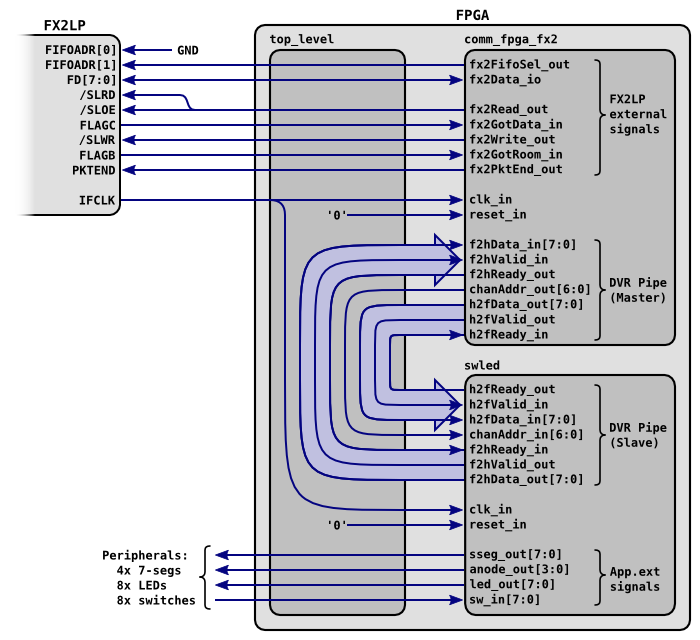INSTALLATION¶
Linux Installation¶
Prerequisites¶
You’ll need a gcc compiler and the development packages ABCDEFGHIJKLMNOPQRSTUVWXYZ for libusb and libreadline. For example, on a Debian-derived Linux distribution (e.g Debian, Ubuntu & Mint), thus:
$ sudo apt-get install build-essential libreadline-dev libusb-1.0-0-dev python-yaml
If you want to use the Atmel AVR firmware, you’ll also need the AVR toolchain:
$ sudo apt-get install gcc-avr avr-libc dfu-programmer
The Cypress FX2LP firmware is provided as a pre-built .hex file, so you don’t need to build it from source, but if you want to do so, you’ll need sdcc:
$ sudo apt-get install sdcc
For building the VHDL and/or Verilog examples for loading into your FPGA you’ll need to install the FPGA vendor tools. For Xilinx FPGAs you’ll need ISE WebPACK and for Altera FPGAs you’ll need Quartus II Web Edition.
Note
Pay close attention to the supported device families before you download the software: Altera especially have a habit of dropping tooling support for devices fairly rapidly, so unless your FPGA is very recent you may need to download an older software release.
On Debian/testing amd64 I did this:
If you want to run the VHDL in simulation you’ll need GHDL and GTKWave. You can get a recent GHDL from Joris van Rantwijk:
$ wget http://jorisvr.nl/debian/ghdl/ghdl_0.30~svn20130213-2_amd64.deb
$ sudo dpkg --install ghdl_0.30~svn20130213-2_amd64.deb
$ sudo apt-get -f install # fix dependencies
And you can install GTKWave from the standard repository:
$ sudo apt-get install gtkwave
Blah¶
Blah blah blah.
Copyright (C) 2009-2014 Chris McClelland
This program is free software: you can redistribute it and/or modify it under the terms of the GNU Lesser General Public License as published by the Free Software Foundation, either version 3 of the License, or (at your option) any later version.
This program is distributed in the hope that it will be useful, but WITHOUT ANY WARRANTY; without even the implied warranty of MERCHANTABILITY or FITNESS FOR A PARTICULAR PURPOSE. See the GNU Lesser General Public License for more details.
You should have received a copy of the GNU Lesser General Public License along with this program. If not, see <http://www.gnu.org/licenses/>.
Blah.
FooBar¶
Note
Blah note!
Foo bar!
Code:
1 | <h1>code block example</h1>
|
Foo:
1 2 3 4 5 6 | // 456789012345678901234567890123456789012345678901234567890123456789012345678901234567890
#include <stdio.h>
int main(void) {
printf("Hello World\n");
}
|
See?
1 2 3 4 5 6 7 8 9 10 11 12 13 14 15 16 17 18 19 20 21 22 23 24 25 26 27 28 29 30 31 32 33 34 35 36 | package mem_ctrl_pkg is
type MCCmdType is (
MC_NOP,
MC_RD,
MC_WR,
MC_REF
);
component mem_ctrl is
generic (
INIT_COUNT : unsigned(12 downto 0); -- cycles to wait during initialisation
REFRESH_DELAY : unsigned(12 downto 0); -- gap between refresh cycles
REFRESH_LENGTH : unsigned(12 downto 0) -- length of a refresh cycle
);
port(
clk_in : in std_logic;
reset_in : in std_logic;
-- Client interface
mcAutoMode_in : in std_logic;
mcCmd_in : in MCCmdType;
mcAddr_in : in std_logic_vector(22 downto 0);
mcData_in : in std_logic_vector(15 downto 0);
mcData_out : out std_logic_vector(15 downto 0);
mcRDV_out : out std_logic;
mcReady_out : out std_logic;
-- SDRAM interface
ramCmd_out : out std_logic_vector(2 downto 0);
ramBank_out : out std_logic_vector(1 downto 0);
ramAddr_out : out std_logic_vector(11 downto 0);
ramData_io : inout std_logic_vector(15 downto 0);
ramLDQM_out : out std_logic;
ramUDQM_out : out std_logic
);
end component;
end package;
|
See?

And that’s all.